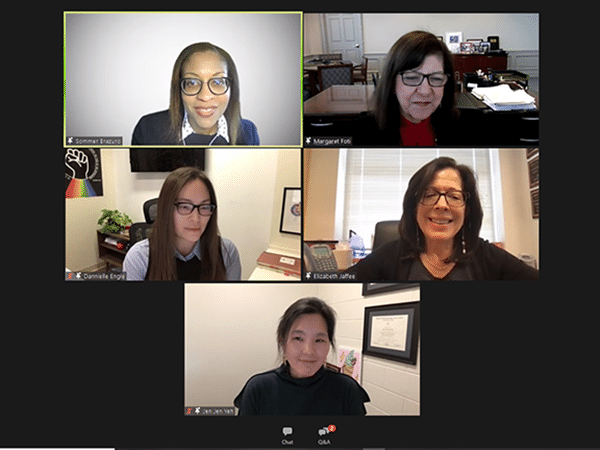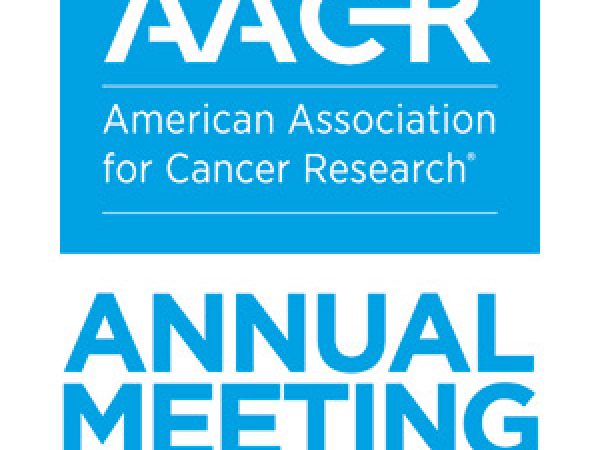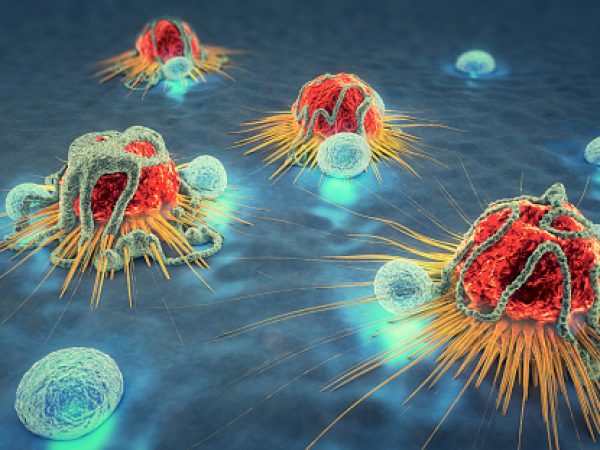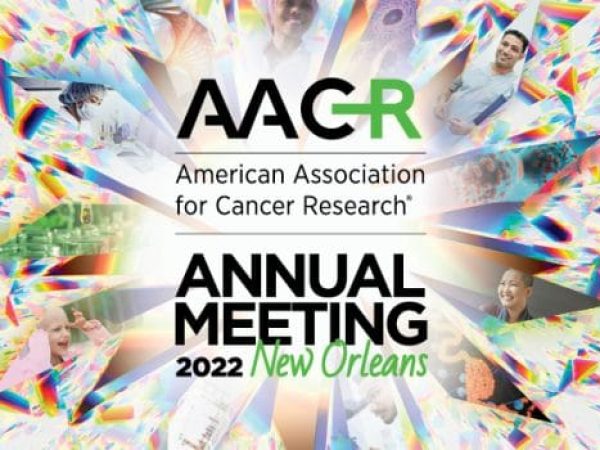AACR CEO Margaret Foti Joins Panel of Women Cancer Scientists at Lustgarten Foundation International Women’s Day Event
Tuesday, March 8, marked International Women’s Day, a global celebration of the social, economic, cultural, and political achievements of women. This year’s theme, #BreaktheBias, provided an opportunity for the Lustgarten Foundation, the world’s largest private funder of pancreatic cancer research, to bring together pioneering women in cancer science and medicine to discuss experiences in their professional careers in a program titled The Power of Persistence: Women Transforming Cancer Research and Care.
Margaret Foti, PhD, MD (hc), chief executive officer of the American Association for Cancer Research (AACR), participated in two panels, one of which featured a discussion of the new horizons in cancer research and another that emphasized the importance of fostering scientific advancement through mentorship. The second panel, called “Sharing the Journey: Fostering Growth Through Mentorship,” included AACR Past President Elizabeth M. Jaffee, MD, FAACR; Sommer Bazuro, PhD, of FCB Health Network; Jen Jen Yeh, MD, of the University of North Carolina School of Medicine; and Dannielle Engle, PhD, of the Salk Institute for Biological Studies. In a dynamic conversation, the panelists discussed the importance of cultivating a strong pipeline of female cancer researchers.

“The indisputable truth is that the professional success of women scientists and physicians is absolutely essential for rapid progress against cancer,” Foti said. “Their contributions have been pivotal to advances in research, patient care, and public health. Further, the integration of women at all levels of oncology will ensure that the cancer workforce reflects the gender diversity of the populations it serves.”
Here are some key points from Foti’s comments.
On women in leadership at the AACR
When I started at the AACR, women represented only 14 percent of the membership; now, women represent 43 percent of our more than 50,000 members. And I am proud to say that over 46 percent of the leadership positions at the AACR are now held by women—significantly more than at other scientific and clinical organizations.
The AACR has made concerted efforts to increase the participation of women on our Board of Directors, committees, task forces, and scientific working groups. Our Women in Cancer Research association group has been in existence for over 30 years, and it works all year round to support the careers of women in the field. And the goal of fostering women in the field is also acted upon by the work of the Minorities in Cancer Research and the Associate Member Councils, which include women in leadership.
On developing mentors and sponsors
The mentorship of women is obviously essential. Mentors need to be accessible, supportive, and sincere in providing career and interpersonal counseling and valuable networking opportunities. They also need to help women in goal setting and understanding measures of accomplishment.
There is also a vital role for “sponsorship,” which is the public support by an influential person for the advancement of an individual who may have untapped or unappreciated talent or potential. This is very important because sponsors can act as advocates at key career junctures. Sponsors are very different from mentors because mentors may not be in positions of power or be fully vested in an individual’s career.
Unfortunately, because there are fewer women in the senior ranks of science to serve as sponsors, many women who need sponsors go underserved. Therefore, having male sponsors as well as mentors is very important and can be career-changing for women scientists. This was certainly the case in my own career!
As I look back on AACR’s history, the first female member of the AACR, Martha Tracy, MD, was inducted in 1908, and she was sponsored by the famous William B. Coley, MD, known as the “Father of Immunotherapy.” Because of his proactivity and sponsorship, she became a member of the AACR and she contributed to the development of “Coley’s Toxins,” which was one of the first immunotherapeutic agents.
On cultivating a strong female work force
Women now represent a large proportion of the graduating classes of PhDs in the life sciences and MDs, frequently over 50 percent. This is wonderful, and it should result in more robust representation at all levels of the cancer research workforce. This should also make it easier for early-career female researchers to identify female mentors and sponsors.
Organizations like the AACR and the Lustgarten Foundation not only have the opportunity to help women in the workforce, but we also have the responsibility to support women professionally, educationally, and financially—by appointing them to members of committees, boards, and other leadership positions; offering speaking opportunities; and providing research grant funding. To be successful, women scientists and physicians in the cancer field need substantial support in all of these areas.



